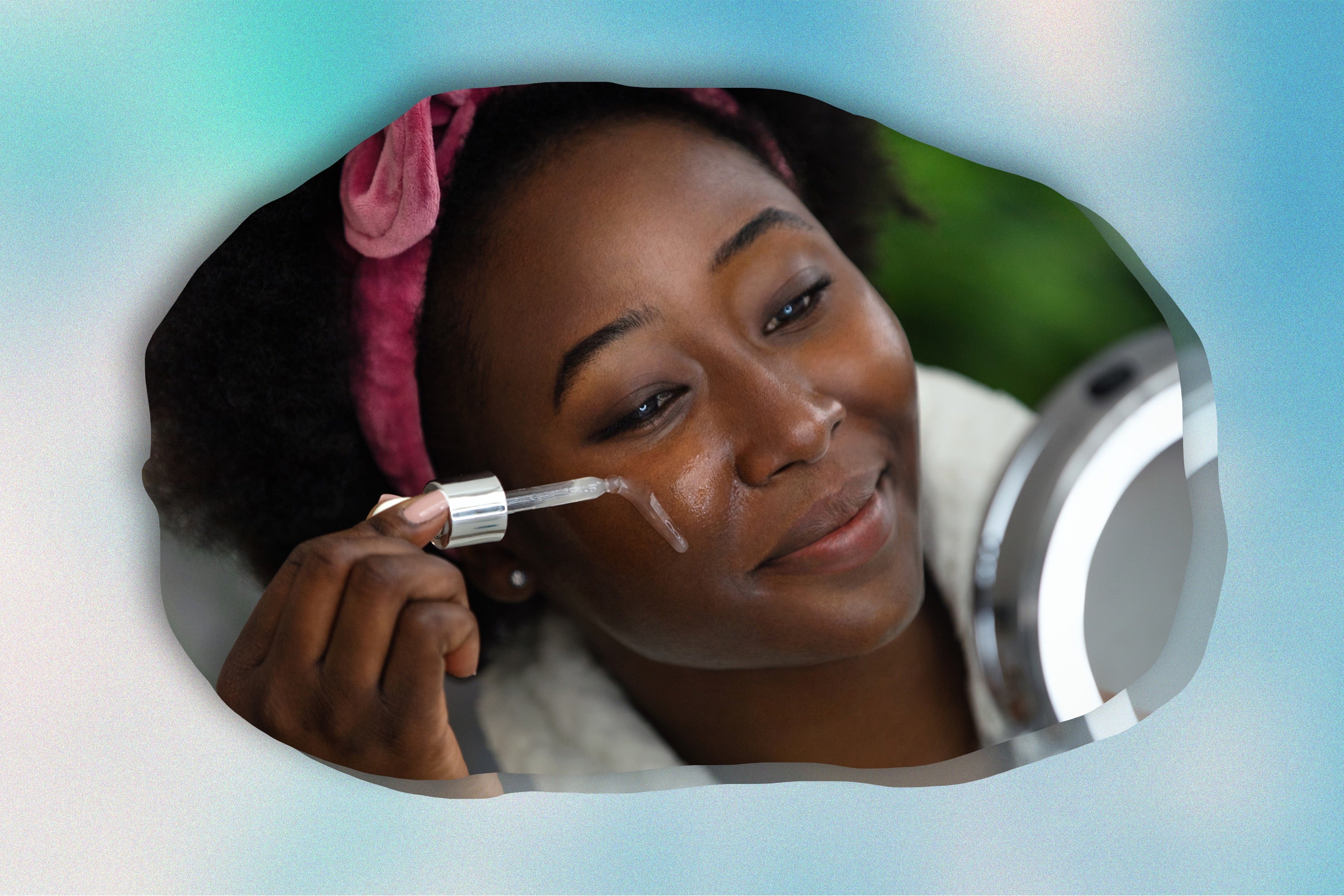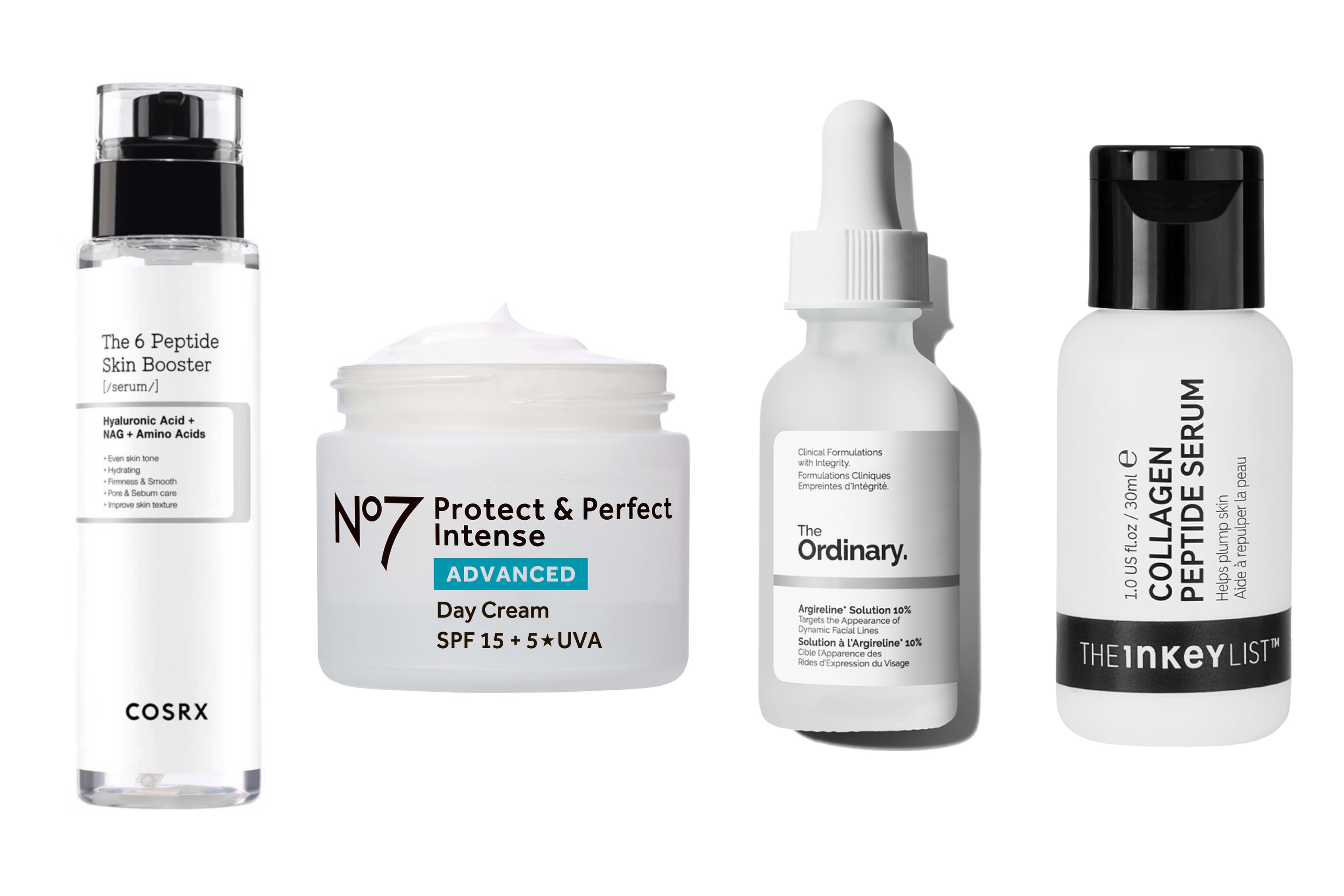The Independent's journalism is supported by our readers. When you purchase through links on our site, we may earn commission. Why trust us?
Peptides: An expert explains the ins and outs of the popular anti-ageing ingredient
The ingredient is found in serums and creams that claim to tackle the visible signs of ageing

Peptides are the talk of the skincare sphere at the moment and are popping up in new products left, right and centre.
Take Medik8, for instance; just two days ago (28 January) the brand launched its liquid peptides advanced MP serum (£79, Spacenk.com) which claims to reduce wrinkles in as little as eight weeks. Likewise, earlier this month Paula’s Choice dropped a new pro-collagen peptide moisturiser (£49, Spacenk.com) and, back in 2024, we saw peptide-led formulas introduced from the likes of Glow Recipe, L’Oréal and more.
There’s no denying the ingredient’s popularity but what are peptides, really? We wanted to get granular about the science behind the supposedly anti-ageing component. How does it work? And are they sensitive skin approved?
We reached out to an expert in the skincare field to inform our research, garnering kernels of cosmetics wisdom from their numerous years in the industry. Here’s what they had to say.
Meet the expert
Emma Wedgwood is an advanced aesthetics nurse of more than 20 years. As well as working as an intensive care nurse for the NHS, she trained in aesthetic medicine on Harley street where she now works within her self-founded clinic, Emma Wedgwood Aesthetics.
What are peptides?
“Peptides are small chains of amino acids, which are the basic components that make up the proteins found naturally in your body,” reveals Wedgwood. She goes on to say that they’re very important in terms of skincare because they help to support your skin’s structure and functions.
What do peptides do?
Putting their purpose into simple terms, Wedgwood explains: “Peptides send signals to your skin which essentially tell your skin cells to do certain things.”
Breaking this down, she credits peptides as anti-agers, owing to the fact that they “signal your skin to produce more collagen, which makes your skin firmer and less wrinkled”. She adds that peptides boost hydration and, by working to support the natural healing process, thus promote a healthier skin barrier.
“Some peptides can even calm inflammation and help heal signs of damaged skin,” she says, which makes them particularly good for people with sensitive or acne-prone skin.
Are peptides good for skin?
“Definitely!” Wedgwood confirms. Circling back to the function of peptides, she adds that they’re great for “improving skin texture and increasing hydration”.
Which peptides are best for anti-ageing?
For those who don’t know, there are thousands of different types of peptides, 7,000 of which (according to LA-based private healthcare providers, Next Health) are naturally occurring in our own bodies.
Touching on this, Wedgwood pinpoints four types of peptides she recommends for more mature skin types.
It’s sometimes compared to botox because it helps reduce the appearance of fine lines by relaxing the facial muscles
“Matrixyl is one of the most popular peptides for boosting collagen and reducing wrinkles,” she begins, adding that “copper peptides promote collagen and elastin production while also helping to heal the skin.” Both of these, respectively, are featured in No7’s protect and perfect intense day cream (£24.95, No7.co.uk) and Cosrx’s 6 peptide skin booster (£18.90, Amazon.co.uk). Completing her trifecta of collagen-producing peptides, Wedgwood recommends palmitoyl tripeptide-1, which is one of the key ingredients in The Inkey List’s affordable collagen peptide serum (£11.25, Amazon.co.uk).
Finally, Wedgwood suggests argireline. Surprisingly, she adds that “it’s sometimes compared to botox because it helps reduce the appearance of fine lines by relaxing the facial muscles”. Any alternative to injectables has our attention so, after spotting The Ordinary’s very own argireline solution (£9.20, Boots.com), we’ll be stocking up.

Who needs peptides, typically?
While Wedgwood admits that peptides are good for everyone to use, she does caveat that they’re particularly good for people who are concerned about ageing, dry, or sensitive skin.
To this, she adds that they can be an effective skincare addition to those suffering sun damage or acne scarring because “they support skin healing”.
Wedgwood goes on to say that people with younger skin can benefit from peptides, too, largely because of their hydrating and skin health-boosting properties.
Can peptides cause acne?
Dispelling rumours that peptides are bad news in terms of breakouts, Wedgwood states that they’re are actually good for acne-prone skin. This, she says, is because they have both skin healing and anti-inflammatory effects.
Can peptides be used with retinol?
In short: Yes! In fact, Wedgwood assures: “They can help calm some of the irritation that comes with retinol, so they are great to use together.”
Can peptides be used with vitamin C?
Again, it’s a yes from Wedgwood. Though, she suggests using your Vitamin C product first, followed by peptides.
Are peptides safe?
Wedgwood confirms that peptides are “very safe and gentle”, adding that “they’re less likely to irritate your skin compared to stronger products like acids or retinol”.
Taking us through their origins, she details how peptides are natural amino acids – AKA the building blocks of proteins – from plants such as soy, rice or sometimes animals. However, you can also get synthetic peptides, which involve a chemical process called synthesis. Wedgwood assures that most people would be fine using both types, natural and synthetic.
As ever, caution is advised for anyone particularly irritation-prone and, indeed, Wedgwood recommends those individuals always carry out a patch test on a small area of skin.
After more skincare tips and tricks? Read our guide on how to repair your damaged skin barrier, according to a dermatologist





Bookmark popover
Removed from bookmarks